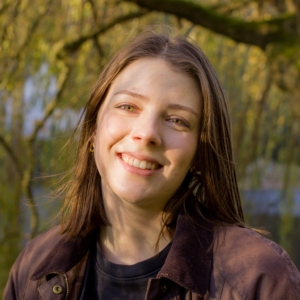Katherine Watson is a contemporary archaeologist and PhD candidate in the Department of History, Heritage and Classics at Swansea University. Her doctoral project is provisionally entitled ‘Small-Scale Fisheries, Local Seafood and the Future of Fishing Heritage in South Wales’ and is supervised by Dr. Hilary Orange and Prof. Louise Miskell. It is co-funded by DePOT and CHART (Centre for Heritage Research and Training) at Swansea University. Katherine graduated from Durham University with a BA (Hons) in Anthropology and Archaeology (First Class) in 2021, and an MA in Archaeology (Distinction) in 2022. Her key research interests include post-industrial landscapes, industrial heritage, consumption, and the politics of extraction. Katherine has published in the International Journal of Heritage Studies and has produced several blog posts.
PROJECT DESCRIPTION
Fishing heritage and seafood culture in South Wales are focal points for this doctoral project which integrates critical heritage research with a concern for cultivating alternative, ecologically oriented and non-anthropocentric visions for the future. Fishing heritage and seafood culture are sites of contradictions. For example, while coastal villages are promoted as sustainable heritage tourism destinations, residents are threatened by gentrification and privatisation. The small-scale fishing fleet in Wales is in a poor condition, with 80% of the Welsh catch exported to Europe. By tackling these tensions, this project apprehends the value systems dictating how we generate, distribute, and consume food and culture. This investigation into value systems is grounded by two tangible questions. Firstly, how has fishing heritage has mediated the reconfiguration of fishing communities? Secondly, how has a great divide emerged between the consumption and supply of seafood in South Wales? Contemporary archaeology frames the project’s engagement with the landscapes, operations and people of the fishing and seafood sectors. Archaeological ethnography will be conducted in four fishing ports in South Wales (Milford Haven, Saundersfoot/Tenby, Swansea and North Gower). This is combined with archival research and oral history interviews with seafood producers and sellers. Acknowledging the many human and non-human entities that populate these physical and theoretical terrains, this project connects the instability faced by coastal communities with the dynamics of global post-industrial capitalism. It seeks to contribute to debates on how to re-structure modern value systems and challenge the capitalist cycle.




 Photo: Collettivo Gkn © Andrea Sawyerr
Photo: Collettivo Gkn © Andrea Sawyerr